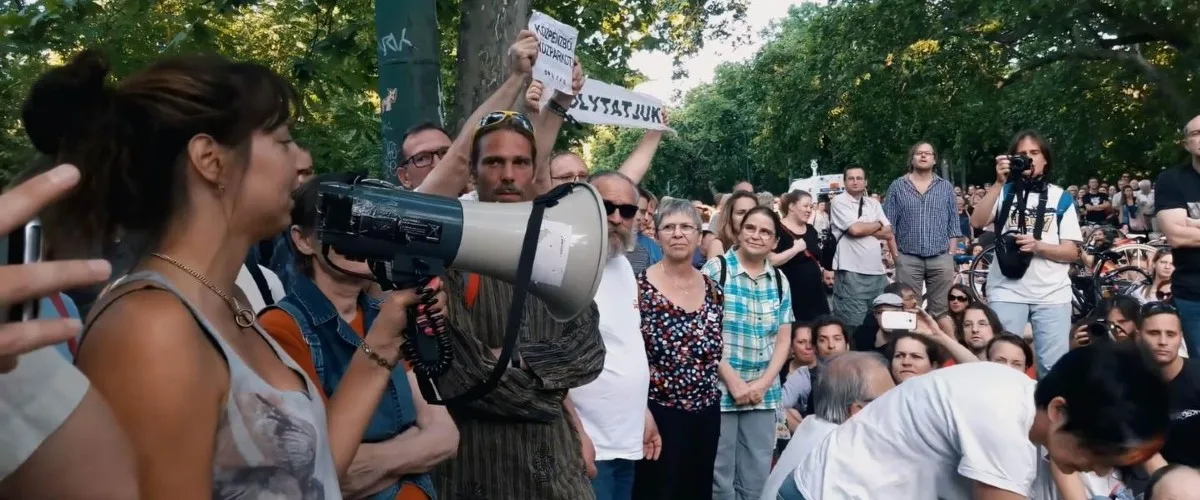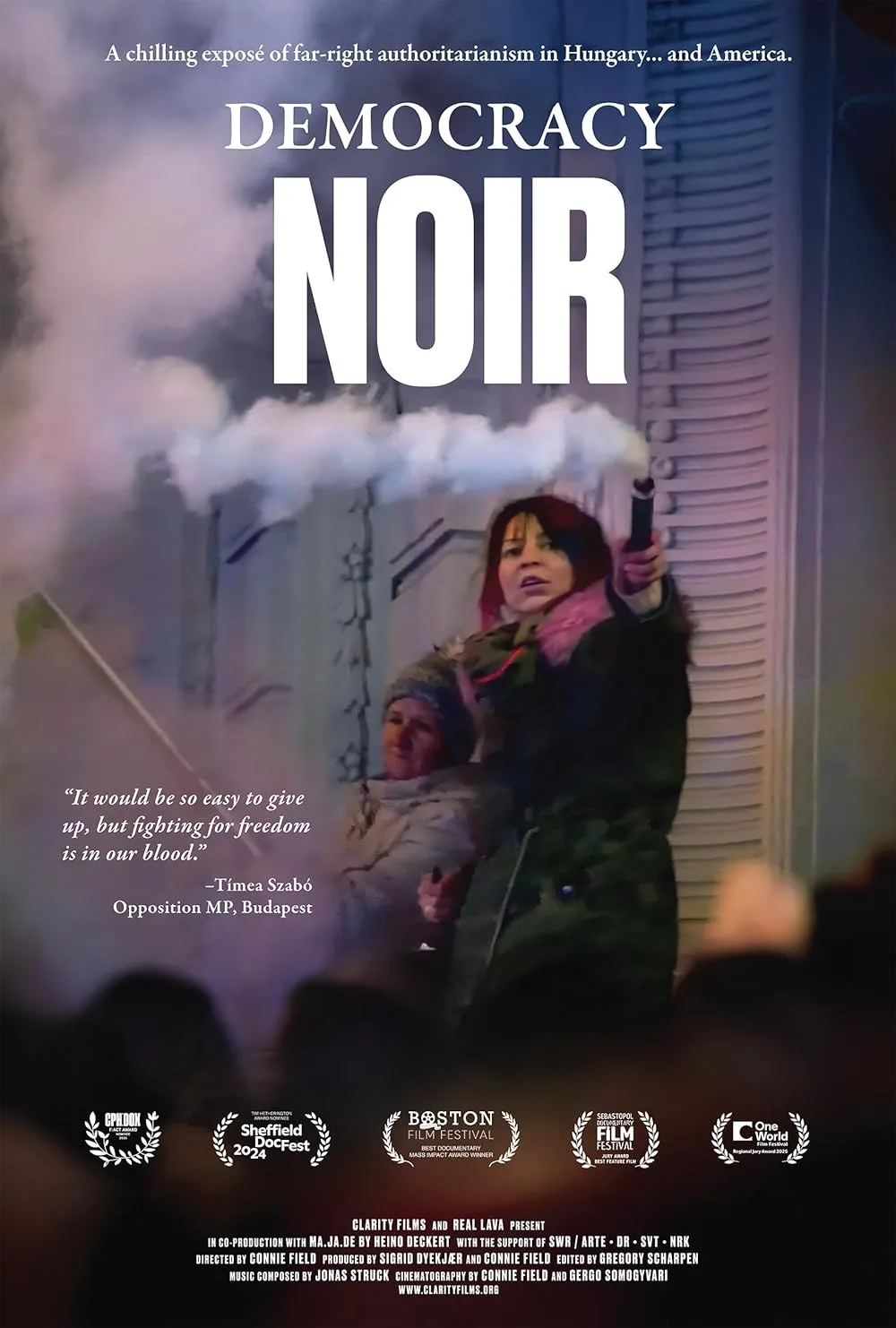Political documentary filmmaker Connie Field’s newest, “Democracy Noir,” is a Hungarian tale that rings poignantly in the American ear. Chronicling the rise and power of Hungary’s Prime Minister, Viktor Orbán, and his efforts to undermine democracy, the film follows three women—MP Tímea Szabó, journalist Babett Oroszi, and nurse and activist Niko Antal—as they work to preserve their nation’s rights.
Within two minutes of the film, Field, an American, includes clips of Orbán shaking hands with Trump and Putin, quickly establishing the cross-cultural throughline she intends to draw. While this is spoon-fed, the rest of “Democracy Noir” tails the tie-in thoroughly and emotionally. Field’s documentary subverts prototypical definitions of dictatorship, showing how easily propaganda and covert policy make for authoritarianism without tanks or martial law. Concurrently, she outlines what appears to be a tried-and-true blueprint for governmental takeover, which seems to be being followed to the letter by America’s current administration.
Although sitting in office since 2010, the film repeatedly points to the 2018 election as the beginning of the fall, where Orbán, the conservative Fidesz party leader, lost the popular vote but won the necessary two-thirds majority in Parliament (another familiar pattern). In his rise, he implemented a new national constitution, and when deemed unconstitutional, replaced the Constitutional Court (similar to our Supreme Court) with his own cronies. He gerrymandered voting districts, defined family as man-woman-child, and deemed Hungary a Christian nation, despite only 40% of citizens voting themselves religious (of any kind) in the country’s census. He and his conspirators bought out the nation’s news media, locking out reporters overnight, and establishing control of all major public broadcasting systems.
Orbán’s conservative takeover of Hungary also implemented a war on migrants and the LGBTQ+ community, positing them as enemies of child safety and nationalist pride. In a horrifying clip, Orbán states in reference to Syrian refugees, “they [the left] want to dilute and replace the people of Europe.” Soon after, we see Neo-Nazi Sieg Heil and spout homophobic slurs at Budapest Pride. So-called racial purity, heteronormativity, and nationalism are the center of Orbán’s politics, whilst freedom of the press, judicial independence, and personal freedoms are on his chopping block.
The way in which Orbán weaponizes religion, his citizens, and the media is all too familiar in “Democracy Noir.” But Field maintains that even in the face of oppressive institutions, there are individuals from all communities who will be faces of refusal. She does so by tapping into three sectors of Hungary: the government, the media, and the general public.
Nurse and activist Niko Antal is the face of regular protesting, watching funds be funneled out of public health and into stadiums and state museums. She is also representative of a generation, living in a home with her mother, who shares the nationalist views of the Fidesz party. MP Tímea Szabó shows what it’s like to try and dismantle the regime from the inside, becoming a target herself of Orbán’s propaganda and media fire. And Babett Oroszi, a lesbian journalist who focuses on the state’s corruption, fights for the preservation of the small amount of independent news that remains in Hungary. These women are faces of work and hope, and Field’s documentary tells the tale of Orbán through their eyes and pursuits.
“Democracy Noir” outlines the politics of Hungary, but also of a changing world, leaning further into conservatism and authoritarianism. In a chilling sequence, world leaders and politicians gather for a Conservative summit in Hungary, with many American citizens also in attendance, lauding the country as a blueprint for what they hope to see in the United States. So while the film is an informative tale of international politics, it’s also a warning sign and rallying cry for action back home.




















